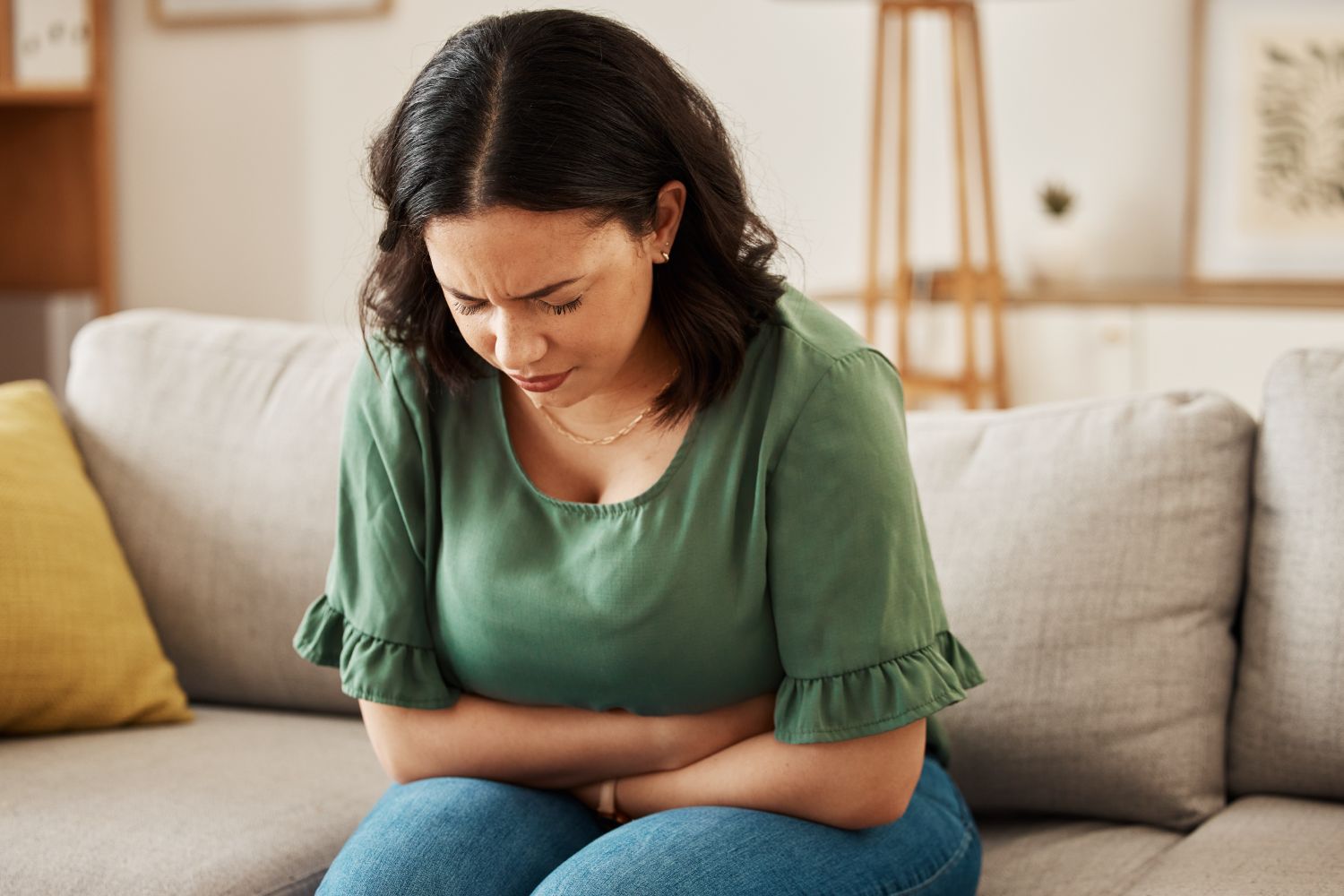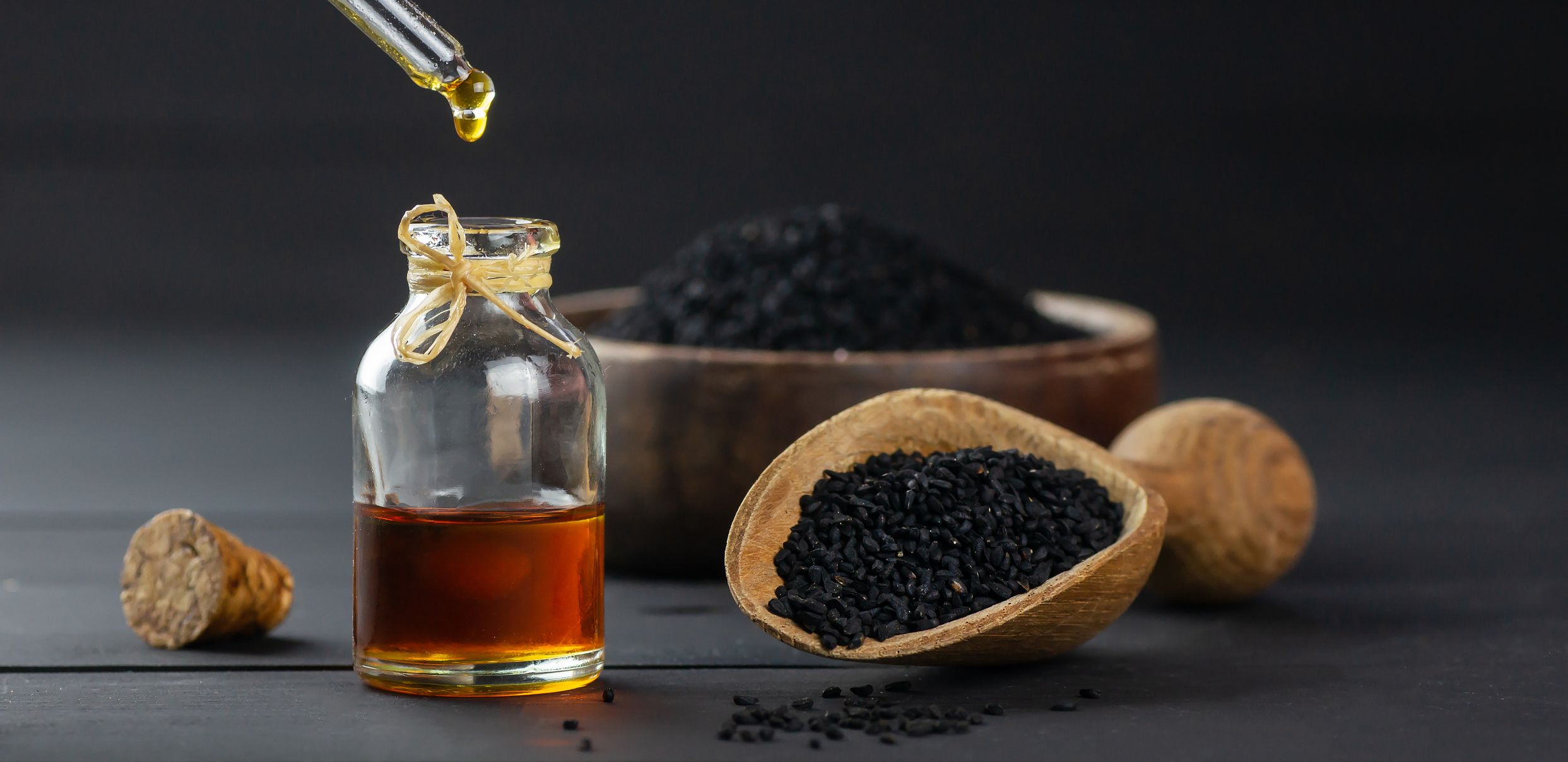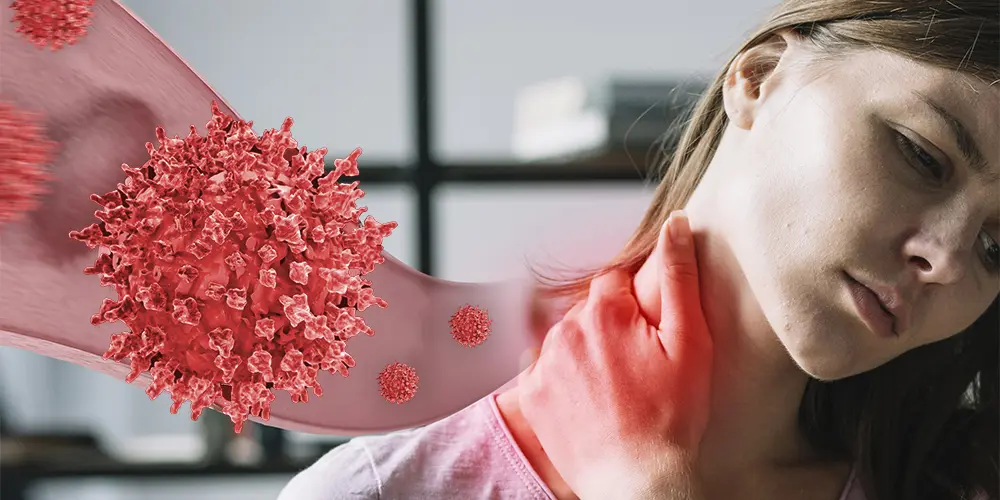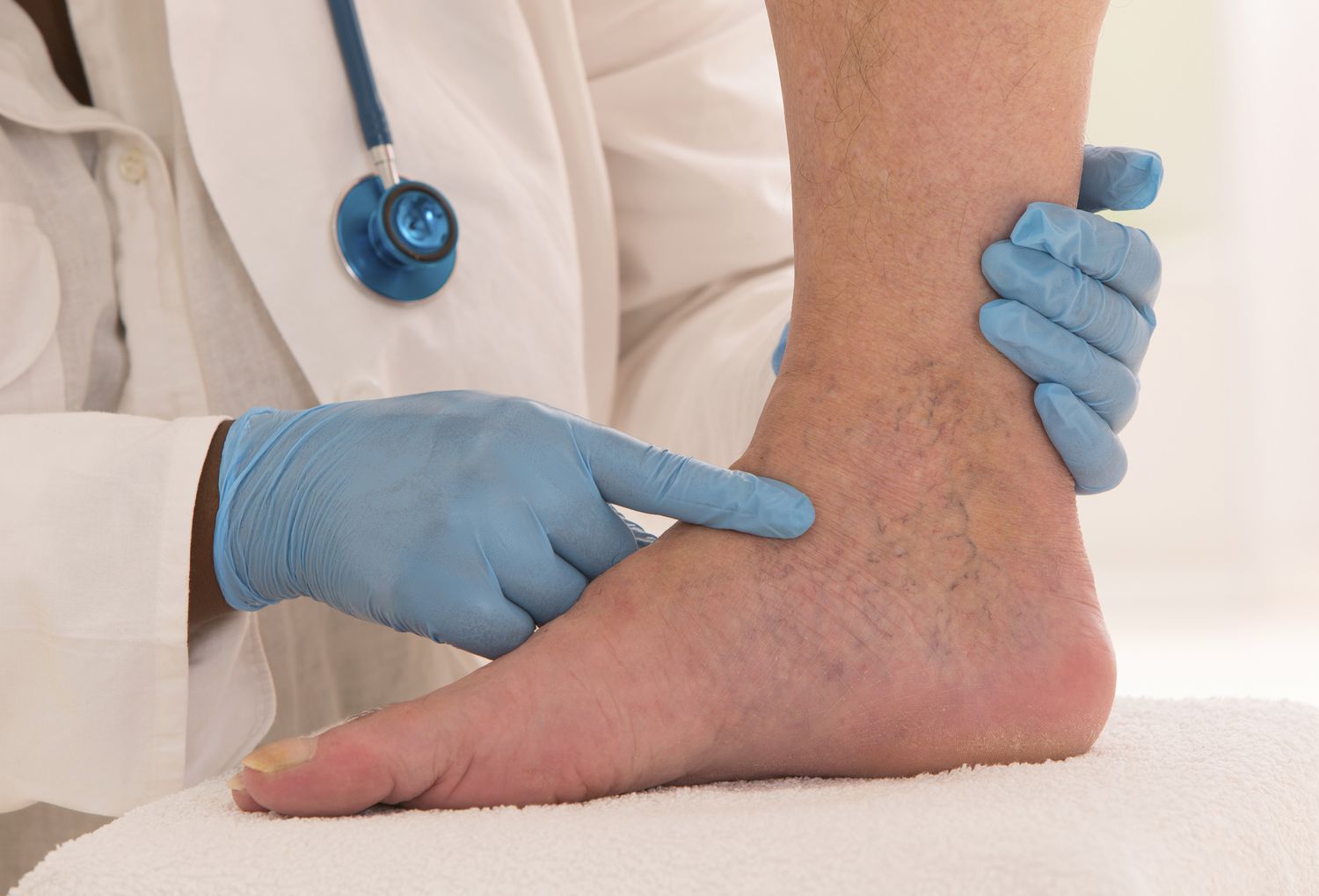Do you often experience feeling uncomfortable and bloated when you wake up? Do you notice sudden weight gain and your dresses get tight? After a couple of days, you think after waking up feeling uncomfortable and bloated. These experiences are the symptoms of polycystic ovarian syndrome (PCO).
If you are among the ones who struggling with these conditions especially bloating you have connected with the right place. We aim to provide you with all realities associated with PCO especially bloating.
In this article, you will get the facts about the relationship between bloating and PCOS. We also suggest and explain how lifestyle changes, diet, and gut health can play a crucial role in managing PCOS symptoms.
The key symptoms of polycystic ovarian syndrome are irregular menstrual cycle, acne, excessive hair growth on the face, and of course bloating.
In this article we also delve into the causes of PCOS, how sleep is important, and tips on how to manage this condition.
So get ready to the way to a healthy and happy life and keep reading.
What is PCOS?
Polycystic Ovary Syndrome, generally known as PCOS, is a common endocrine disorder that impacts about one in ten women during their reproductive part of life. It’s a complex situation that’s not completely understood, in which multiple cysts form on your ovaries and androgen production gets elevated. Androgens are believed to be male hormones.
As we discuss above PCOS is also associated with irregular menstrual cycles, which may lead to trouble in getting pregnant. The reason behind not getting pregnant is often associated with other health issues such as weakened glucose metabolism, which makes you with PCOS more susceptible to type 2 diabetes.
Your healthcare will diagnose your PCOS based on at least one of three criteria that are excess androgen levels, polycystic ovaries, and irregular menstrual cycle.
PCOS and its impact
PCOS (Polycystic Ovary Syndrome) is a composite hormonal disorder that can significantly impact a woman’s life. It’s not just reproductive health but its impacts several aspects of your health. Its effects undulate through several aspects of your health. So it’s important to know the all details of PCOS and its impacts on effective management.
Symptoms of PCOS
After understanding basic knowledge about PCOS, now my turn to know all the symptoms associated with it. Here are the symptoms
- Weight gain
- Acne
- Excessive hair growth (hirsutism)
- Irregular menstrual periods
- Multiple cysts on the ovaries
- High levels of androgens
- Bloating
- Impaired glucose metabolism
- Other gastrointestinal issues
PCOS bloating causes and effects
Women (who are struggling with PCOS bloating) must understand the causes and effects of PCOS bloating. You just not only experience physical distress but also feel emotionally weak to deal with daily life. Gut imbalance and water retention a common symptoms of PCOS. However, the root causes are often associated with your dietary choices and can be linked to hormonal imbalances and gut health issues. So let’s explore the causes and effects of PCOS bloating and keep reading.
Read also:
Lose Weight with hypothyroidism, with a diet plan
Why does PCOS cause bloating?
Hormonal imbalance and gut health
PCOS bloating is a more common symptom but still, it is not fully understood. The primary reason behind this distress condition, are hormonal imbalance and gut health issues. Women with PCOS often have higher levels of male hormone and lower levels of progesterone which can cause water retention and eventually bloating sensation.
Less variety in gut bacteria
Another main factor is the imbalance in gut bacteria. PCOS is often linked with a low range in gut microbiota, which can disturb the normal functioning of your digestive system. This can cause conditions like slow gastric emptying or constipation, further worsening the bloating.
Increased estrogen levels
Estrogen, a hormone often elevated in women with PCOS, can affect intestinal motility, causing an accumulation of gas and, as a result, bloating occurs. Eventually, this condition can lead to pelvic floor problems after your pregnancy which can lead to ongoing bloating.
The function of gut health in PCOS bloating
Research has shown that your gut health may play a crucial role in PCOS symptoms like bloating. It’s a complex relationship that contributes the gut microbiome, (a population of trillions of bacteria that live in the colon). When the balance of this microbiome colony is disrupted, it can lead to an overproduction of intestinal gases, leading to bloating. This imbalance, often known as dysbiosis, can be triggered by various factors including antibiotic usage, environmental influences, and poor dietary choices.
Dysbiosis can be problematic in PCOS. You are more prone to gut imbalance if you have PCOS which can aggravate the symptoms of this syndrome, such as bloating. These gut bacteria are coupled with low diversity, which can further lead to insulin resistance and inflammation. These two factors are considered to be key factors in PCOS.
Gut bacteria can also influence water retention in your body. Increased estrogen levels (common in women with PCOS), can also affect your intestinal motility, leading to the accumulation of gas and worsening the bloating.
How PCOS bloating affects your daily life
PCOS bloating can have a significant impact on your daily life, affecting both physical comfort and mental health. The constant feeling of discomfort and fullness can decline your self-confidence and increase anxiety levels.
Furthermore, PCOS bloating can obstruct your ability to participate in regular activities. The discomfort can lead to difficult to engage in physical activities, which are crucial for managing PCOS symptoms. It can also affect your clothing choices, as you may feel self-conscious about your bloated appearance.
Furthermore, the bloating can worsen your other PCOS symptoms such as insulin resistance and inflammation. This occurs because your gut imbalance is linked with PCOS which can lead to an increase in your body fluid imbalance and water retention, further leading to the bloating.
How does diet impact PCOS and bloating?
It’s important to understand the role of diet in managing your PCOS bloating, and it will be the first step towards relief. The food you eat can either increase or exacerbate symptoms, making dietary choices a key aspect in controlling PCOS bloating.
The diet we eat plays a vital role in managing PCOS and its associated symptoms, like bloating is one of them. Your gut is a residence of trillions of bacteria, and maintaining a healthy balance between the harmful and beneficial ones is significant. This balance can be upset by your dietary choices, causing a condition called dysbiosis.
While, dysbiosis in which bacterial imbalance occurs in your gut, can result in the overgrowth of harmful bacteria or a deficit of beneficial ones. You can be more susceptible to dysbiosis if you have PCOS, which can worsen PCOS symptoms, including bloating.
The food we consume can either promote a healthy gut environment or lead to dysbiosis. Certain foods can cause bloating and other digestive problems, especially if you have PCOS. For that reason, understanding the diet’s effects on PCOS and bloating is significant to managing these symptoms effectively.
Read also:
11 warning signs of magnesium deficiency
Foods that contain PCOS-friendly nutrients
Fermented Foods: Fermented foods can increase the microbial diversity in your gut bacteria, which is an indicator of good gut health. These beneficial foods that are good for your gut include
- Pickles
- Miso
- Kefir
- Kimchi
- Sauerkraut
- Yogurt
- Kombucha
Fiber-Rich Foods
Fiber-rich foods can
- Support healthy weight loss
- Increase the feeling of fullness
- Feed your gut bacteria
- Support good gut health
- Fiber-rich foods include
- Fruits
- Beans
- Peas
- Grains
- Vegetables
Low-GI foods
These are the foods that digest slowly, they
- Keep you fuller for a long
- Prevent blood sugar spikes
- Low-GI foods include
- Whole fruits
- Vegetables
- Legumes such as chickpeas and lentils
- Lean protein for example like organic chicken breast and oily fish
- Complex carbohydrates such as legumes, quinoa, and whole-wheat pasta
Mediterranean-style diet
This type of diet can provide you with
- Manage PCOS symptoms
- Reduce inflammation
- These foods include
- Fruits
- Whole foods
- Oily fish such as salmon
- Whole grains
- Extra virgin olive oil
- Leafy green vegetables
Foods to avoid for managing PCOS bloating
Everyone’s body responds differently to different foods but it’s good to avoid junk and ultra-processed food and, food that holds refined sugar. It’s also significant to notice your body’s reactions and recognize your triggers.
Lifestyle changes to manage PCOS bloating
It’s important to adopt a healthier lifestyle to manage PCOS bloating. It’s not just about what you consume or the medicines you take; it’s also about your living style. This section of the article will explore the role of sleep, exercise, and stress management, to manage your PCOS symptoms, so please keep reading.
These lifestyle moderations can help you to reduce your insulin resistance, and gut health, and ultimately, ease PCOS bloating. It’s important to talk to your healthcare provider before making any significant changes to your routine life. Let’s explore these lifestyle adjustments in detail.
Read also: Preeclemsia (BP and urine issues in pregnancy) Causes, diagnosis, and treatment
Exercise and PCOS bloating
Exercise can play a vital role in managing PCOS bloating. It’s not just about losing pounds or staying fit; it’s about boosting gut motility and easing discomfort. A simple workout can trigger your digestive system, and aid in easing the bloating.
But, it’s not necessary to follow gym’s hard workout. Even a fast walk for 20-30 minutes can help your metabolism and digestion. The key is steadiness. Regular exercise can aid in managing PCOS symptoms, such as bloating, by improving insulin resistance, which is a common issue in PCOS.
Before starting any new exercise regimen it’s important to talk to your personal trainer or fitness professional. They can direct you on the best exercises for your specific body requirements and most importantly they ensure you are exercising safely.
Importance of sleep in managing PCOS
Sleep can play a significant role in managing your PCOS symptoms, such as bloating. When you get enough sleep, your body undergoes significant restorative processes. Hormone balance is one of these processes, and it’s particularly important if you have PCOS.
Deprived sleep can worsen insulin resistance (which contributes to PCOS). This can worsen symptoms and boost bloating. Furthermore, lack of sleep can lead to craving for unhealthy foods and increased stress (both of which can exacerbate PCOS bloating).
Note: Managing PCOS is a holistic effort. Diet, sleep, and lifestyle all play a significant role. If you’re struggling with deprived sleep or other phases of PCOS management, must talk to your healthcare provider. They can give you professional guidance and explore further treatment options.
Stress management and PCOS
Stress management is a vital element in searching for managing PCOS which is again associated with bloating. This Stress can exacerbate PCOS symptoms, like bloating, which is due to the increase in cortisol levels that it triggers. This surge can cause insulin resistance, a common issue in PCOS, which can further lead to bloating and weight gain.
Adding stress management techniques into your daily life routine can help lessen these effects. These stress management activities are
- Deep breathing
- Yoga
- Meditation
These techniques can help to lower your cortisol levels, supporting a more balanced hormonal environment.
Note: Remember managing PCOS is a long-term process that demands consistency. With patience and consistency, your efforts (including stress management) will pay extra for your health and improve PCOS symptoms. Always consult with your healthcare provider for appropriate treatmeent option.
Medication and PCOS bloating
Medications for PCOS are often used to regulate your hormones, but some can lead to bloating as a side effect. Regular medicines such as metformin, birth control pills, or spironolactone help in managing your PCOS symptoms but may lead to digestive discomfort or fluid retention. It’s important to consult with your healthcare provider to balance the benefits of these medications while managing side effects like bloating during lifestyle alterations, diet, or adjusting the medication dosage.
This section we will explain the relationship between medication and PCOS bloating, aiming to provide you with a complete understanding of the common medications used and their side effects. We’ll also delve into how you can effectively manage these side effects, ensuring you’re prepared with the knowledge to take control of your PCOS journey. So let’s explore the world of PCOS and medications and keep reading.
Common medications to treat PCOS and their side effects
Metformin: This medication is used to ease insulin resistance, which is a common issue in Polycystic ovarian syndrome.
Side effects:
- Bloating
- Gastrointestinal upset
Birth Control Pills: Birth control pills generally prescribed for two reasons
- To reduce male hormone levels
- To regulate the menstrual cycle
But these drugs can also lead to these conditions as side effects, these are
- Bloating
- Weight gain
- Nausea
Inositol: Myo-inositol is frequently used to treat PCOS, and it used for
- Enhance fertility
- To improve insulin resistance
However, in rare cases, people may experience
- Gas
- Bloating
Spironolactone: This drug is prescribed to
- To increase hair growth
- TO reduce testosterone levels
- But it can also cause
- Bloating
- Stomach discomfort
Letrozole: This medicine is used to boost fertility. But also cause
- Dizziness
- Fatigue
- Bloating
Pioglitazone: This drug is prescribed to manage
- Inflammation
- Insulin resistance
- But side effects are
- Swelling
- Weight gain
- Clomiphene Citrate: This drug is used for fertility treatment in PCOS, but can also lead to
- Pelvic discomfort
- Bloating
- Hot flashes
How to manage medications side effects
Managing side effects due to using medications for PCOS, especially bloating, is a common fear for PCOS patients. It is significant to understand that each individual’s body reacts differently to any medicine, and what works for one person may not be effective for another.
One useful approach is to maintain open communication with your healthcare provider. Regularly discuss your symptoms, and share any side effects you are experiencing. As your provider can adjust your medication dosage, or suggest alternatives to help to ease discomfort.
Another more natural and successful approach is to set lifestyle changes, such as regular exercise and a balanced diet, which can help to ease PCOS symptoms and decrease the severity of medication side effects. For example, eating fiber-rich foods and staying hydrated can help you to regulate digestion and reduce bloating.
When to see a doctor for PCOS bloating
Dealing with PCOS bloating is not easy, and knowing when to seek medical advice is important to managing this symptom. If you have PCOS and experiencing constant bloating, it’s important to know when to consult your healthcare provider. This section of the article will help you recognize the signs that need medical assistance and explain what to expect during your visit. Our aim is to give you the knowledge to manage your PCOS bloating and improve your overall health. So please keep reading we are near to the climax.
Signs you should consult a doctor
Here are the signs after experiencing you should consult your healthcare provider or gynecologist.
You didn’t get successful results after changing your dietary regimen
- Symptoms of PCOS such as acne, too much hair growth, and irregular periods
- Constant gas, heartburn, or bloating
- Unexplained loss of appetite or weight gain
- Fever
- Significant changes in bowel movement
- No results after over-the-counter remedies
- Mucus or blood in stool
- Disturbed mental health due to PCOS or bloating
- Constant vomiting, diarrhea, or constipation
Conclusion
In conclusion, to manage PCOS bloating well, a combination of possible medications, healthy eating, and lifestyle changes, is needed. Improving your diet by including fiber-rich foods, staying active, and making other small changes can ease bloating. Understanding how your gut health is associated with PCOS can also assist you find better ways to manage these symptoms.
While PCOS influences everyone differently, what works for one person might not work for another one. That’s why it’s crucial to regularly talk to your provider, who can guide you to the right treatments and make adjustments as required. They will suggest dietary alterations, medication, or other treatments based on your body’s unique requirements.
Most importantly, you’re not facing this journey alone. With medical support and the right management plan, you can effectively control your PCOS symptoms, including bloating.








